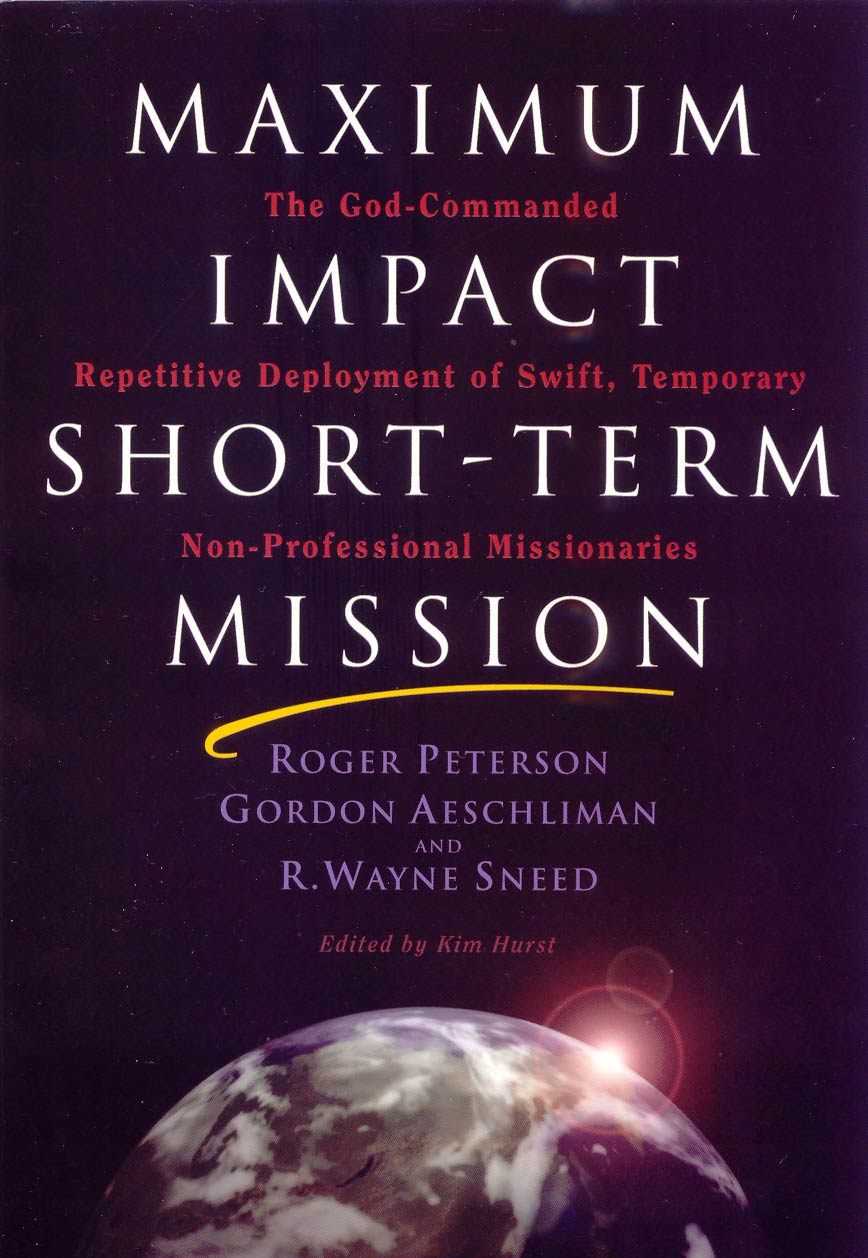AN APPEAL FOR SUPPORT
We invite you to support this ministry. Contributions in support of this Ministry are tax-deductible. Kindly send your support to
Bethany International
6820 Auto Club Road, Suite A
Bloomington, MN 55438.
Please write Thirumalai's Ministry in the memo column. Also, please buy your books using the AMAZON link given in every page. Even the smallest contribution will help in running this journal.
BOOKS FOR YOU TO READ
AND DOWNLOAD
- THE SPIRIT'S PASSION
A Book of Christ-centered Poems and Free Verse by Pastor Harold Brokke - THE LAW IS HOLY by Pastor Harold Brokke
- WORLD MISSIONS - A HISTORICAL PERSPECTIVE
by Tom Shetler - LIVE A VICTORIOUS LIFE IN THE SHADOW OF THE CROSS! : INTERCESSION, WARFARE, AND DELIVERANCE
by Pastor Ted Hegre. - MISSING PIECES: THE INCOMPLETE GOSPEL by LeRoy Dugan
- LUTHER'S PROTEST by M. S. Thirumalai
- TELL ME IT'S TRUE ...
A Book Of Poems by Stan Schmidt - SOMETHING IS GREATER THAN WONDERS...
A Book Of Poems & Free Verses by Pastor Harold Brokke - GEMS OF TRUTH by Stan Schmidt
- WHERE IN THE WORLD IS GOD? by Alec Brooks
- LIGHT OF THE WORLD, an Original Screenplay by W. G. Orr
BACK ISSUES
- NOVEMBER 2001
- DECEMBER 2001
- JANUARY 2002
- FEBRUARY 2002
- MARCH 2002
- APRIL 2002
- MAY 2002
- DECEMBER 2002
- JANUARY 2003
- FEBRUARY 2003
- MARCH 2003
- APRIL 2003
- MAY 2003
- JUNE 2003
- JULY 2003
- AUGUST 2003
- SEPTEMBER 2003
- OCTOBER 2003
- NOVEMBER 2003
- DECEMBER 2003
- JANUARY 2004
- FEBRUARY 2004
SEND YOUR ARTICLES FOR PUBLICATION IN Christian Literature and Living.
- E-mail your articles and book-length reports to thirumalai@bethfel.org or send it by regular mail to:
M. S. Thirumalai, Ph.D.
6820 Auto Club Road #320
Bloomington, MN 55438 USA - Your articles and booklength reports should be written, preferably, following the MLA Stylesheet.
- The Editorial Board has the right to accept, reject, or suggest modifications to the articles submitted for publication, and to make suitable stylistic adjustments. High quality, academic integrity, ethics, and morals are expected from the authors and discussants.
Copyright © 2001
M. S. Thirumalai
Introdcing
SHARING YOUR FAITH WITH A BUDDHIST,
a Book on Evangelism by
M. S. Thirumalai

THE BOOK
In Sharing Your Faith with a Buddhist, the author explains the historical background of Buddhism, its beliefs and practices in many nations, the various types of Buddhism, and the key differences between Christianity and Buddhism. The practical tools and help on how to reach Buddhists with the good news of Jesus make this an effective source for evangelism both in the United States and abroad.
PERVASIVE INFLUENCE OF BUDDHISM
Buddhism came to the United States about 125 years ago. However, Buddhist thought began to influence the intellectuals in the United States earlier than the actual practice of Buddhism in America. Although the number of people who practice Buddhism in the United States is still small, around two million or less, Buddhist thought among the general population, who would not consider themselves to be Buddhist, is becoming pervasive. In many ways, historically speaking, this has been the way Buddhism penetrated into various nations in Asia. Buddhism sought royal or noble patronage and through this patronage influenced the life and thinking of the ordinary people, ultimately to entrench itself as the religion of a people group or nation.
CONTENTS OF THE BOOK
This comprehensive tool for evangelism contains 14 chapters, dealing with the themes such as Buddha and Buddhism, Buddhist Truths, Paths and Prohibitions, the Beginnings of Buddhism, the attributes of Buddha, Theravada Buddhism, Mahayana Buddhism, Vajrayana (Tibetan) Buddhism, Buddhism and Christianity: Major Dissimilarities, Evangelizing Buddhists, Idols and Relics, the Influence of Animism, Pantheism, and Polytheism, Magic, Divination, and Spirit Possession. Special features of each nation and each sect and school of Buddhism are presented in a straightforward manner with suggestions as to how we can share our faith with our Buddhist brothers and sisters.
SOME EXCERPTS FROM THE BOOK
"A major Buddhist problem is that at one level a Buddha is treated only as a human being, while at another level he is treated as an incarnation. At one level, a Buddha is not a god, but at another level, he is treated as a god, capable of answering the supplications of faithful petitioners and performing miracles.
"Jesus came from heaven to live among us as a man. He is fully divine and totally human, God in His incarnation as Jesus the Christ. The Word of God also suggests that the Trinity-the Father, the Son, and the Holy Spirit-are co-eternal, while a Buddha is part of the cycle of birth, death, and rebirth, man being elevated (at times) to the level of a god.
JESUS NOT AS PHILOSOPHER, BUT A SAVIOR
"The ministry of Jesus was, is, and will ever be for those who are lacking in spirit and body. Gautama Buddha represents an elaborate philosophical superiority, whereas Jesus represents the selfless servanthood that focuses on the poor, the needy, and the dregs of society. This does not mean Gautama Buddha was haughty or boastful about his caste or his socioeconomic background or his spiritual attainment. It does mean his dominant feature was intellectualism, not service to others.
APPEAL TO HEART AND SOUL
"Gautama Buddha exemplified the use of intellect in improving one's spiritual position. Jesus' appeal is to our hearts, full of emotions, passions, sins, and love. Intelligence is not the chief criterion for becoming a disciple of Christ, nor is a beautiful or perfect human body. Even during the ministry of Gautama Buddha, the blind and the lame and the infirm were not taken into the (religious) order of his followers. On the other hand, all were and are fully welcomed to be disciples of Jesus.
"In terms of evangelism, this comparison of the goals of the ministry of Jesus and of Buddha should be presented (1) in a manner that applies to the immediate needs of your Buddhist friend, and (2) in such a way that he can relate to the ministry of Jesus and the social positions of his family, friends, and the poor and needy Buddhists in his home country.
ENDLESS BIRTHS AND DEATHS
"Even with endless births and deaths and rebirths, there is no guarantee that one would ever attain ultimate enlightenment simply by following the behavioral and disciplinary codes laid down within Buddhism. The risk is enormous, and the mere thought of the enormity of the venture makes one give up hope. ... (pages 50-51)."
SPIRITISM
"Modern Buddhist spiritism (as with other animistic religions) cloaks itself in terms from psychology and other disciplines so that people are easily deceived and begin to believe that there may be truth in the spiritist's words. Mysterious happenings add color to the entire performance, but in the end, customers risk losing their money and their souls, for people become addicted to spiritism and slaves to these sittings, gradually living in a world of their own.
"Again, the Word of God commands us not to turn to mediums or seek out spiritists (see Leviticus 19:31; Leviticus 20:6, 27; Deuteronomy 18:9-12; 1 Samuel 28; 1 Kings 22:18-23; 1 Chronicles 10:13). Revelation informs us that the spirits of demons will perform 'miraculous signs, and they go out to the kings of the whole world, together them for the battle on the great day of God Almighty.' It is no wonder that the leaders of public opinion-in fields such as entertainment, politics, and theology-give themselves over to spiritism" (p.104)."
DESIRE
"One of the cardinal declarations of Buddhism is that desire is evil, leading to the accumulation of bad karma that, in turn, leads to endless births, deaths, and rebirths. The Bible does not condemn desire as such, distinguishing between holy and unholy passions. The Word of God abounds in assurance that the desire of the righteous will be fulfilled. When we desire to do His will (Psalm 40:8), the Lord grants our heart's desire (Psalm 21:2). We are promised that "what the righteous desire will be granted" (Proverbs 10:24); "the desire of the righteous ends only in good" (Proverbs 11:23) (p. 143)."
LOWLY CARPENTER, ROLE OF MIRACLES
"In the eyes of the Buddhists, Jesus is not even on the level of a monk. Unlike Gautama, who was the son of a king, Jesus rose from a lowly birth as the son of a carpenter. Jesus ascended to His position suddenly, and then His disciples made Him look big, which, Buddhists argue clearly shows the upstart (unplanned, unendorsed) nature of His ministry. … Your Buddhist friend may even assume that Jesus was nothing more than a magician and that by His magic he gathered needy, worthless people around Him. This comes naturally, as Buddhists maintain that miracles are performed to overwhelm (and perhaps manipulate) those who observe them. For instance, a centuries-old Theravada biography of Buddha (Mahavastu) presents magic (or miracles) performed by Dipankara, predecessor to Gautama, in the following manner:
'Megha threw … five lotus flowers toward Dipankara, the Lord. The flowers remained sustained in the air, and formed a circle round the Lord's radiant head. The Brahmin girl also threw her two lotuses. They also stood suspended in the air, and so did those thrown by other people. This was one of the miracles by the Buddhas impress people, to make them listen to the truth. (Conze, 23)' (p. 148).THE CROSS
The cross certainly a symbol of our suffering, but we need to tell Buddhists that suffering is ultimately overcome by Jesus Christ. The cross, finally, comes to represent victory rather than defeat, and when we remember how the victory was won we also remember in whom we are to place our trust. … The cross continues to cause great disturbance among nonbelievers. They despise it; they do not accept the truth of justification. Pray that your Buddhist friend will come to see the purpose and beauty of the cross and will begin to cling to it in faith (though, of course, not as a talisman or charm, thought to contain energy or power) (p. 161."
Copies are available from leading bookstores. Buy it from Amazon.com.
CLICK HERE FOR PRINTER-FRIENDLY VERSION
WARNINGS FOR AMERICA - LESSONS FROM ISAIAH | ARE YOU HURTING | DON'T TELL ME, CONVINCE ME - How to Persuade the Readers of Your Fiction? | TECHNIQUES FOR TIMES OF TESTING |WHEN A CHRISTIAN SAYS, "I'M DEPRESSED" | TRANSFORM YOUR DOUBTS! | RAISING GODLY YOUNG PEOPLE IN A GODLESS SOCIETY | Introducing SHARING YOUR FAITH WITH A BUDDHIST | Introducing IF I GAINED THE WORLD | Introducing GODWRESTLING | Introducing MAXIMUM IMPACT SHORT-TERM MISSION | HOME PAGE | CONTACT EDITOR
M. S. Thirumalai, Ph.D.
E-mail: thirumalai@bethfel.org
Send your articles
as an attachment
to your e-mail to
thirumalai@bethfel.org.




